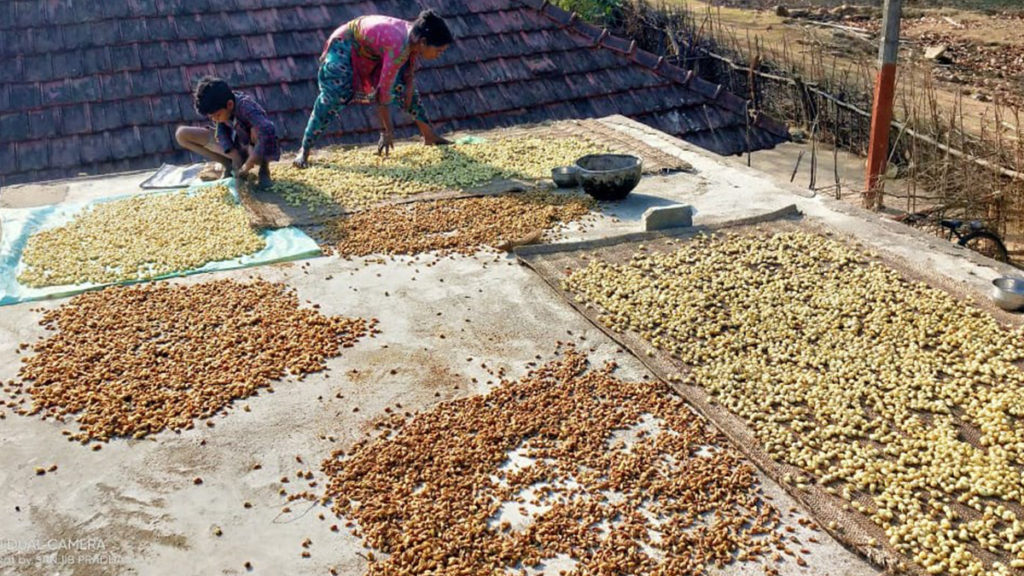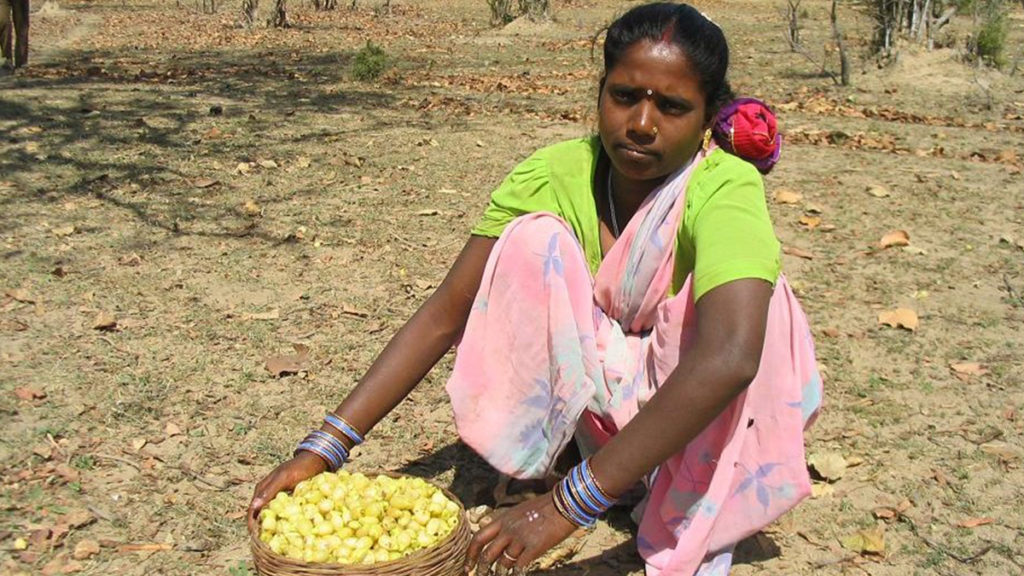Mahula: The Tree Of Life
A tribal saying goes this way: “Heaven is where the Mahula (mahua) tree grows, and where there are none to make wine, it is hell.” For Indian tribals, mahula is a tree of life. It is a source of food, medicines, fuel and even animal fodder. And in Odisha’s Similipal, these trees are worshipped too.
The forests of Simplipal in Mayurbhanj district are abundantly filled with Mahula trees. A treasure trove of nature, Similipal Biosphere Reserve is home to a rich flora and fauna besides a number of tribes which depend on Mahula for survival.

Mahula is a flower-bearing deciduous tree found in the uplands of Simlipal and also on agricultural lands in Mayurbhanj. This wonder tree hinders growth of corn in the fields but the tribals refuse to cut them. According to the locals, its flowers, fruits, leaves, wood and other parts are directly or indirectly beneficial for them. Mahula is also considered a sacred tree which plays an important role in auspicious rituals of the indigenous tribes. The customary marriage rituals are also performed under the tree. It is believed that getting married under a Mahula tree helps wash away all the sins of the couple and blesses them for a happy and prosperous life.
The tree is regarded as the protector of tribal life. Its flowers are collected and dried to prepare a refreshing drink and even pithas. Apart from being delicious, it is also nutritious. A special solution, called ‘Kachada’ oil, is derived from mahula seeds which is effective in reducing muscle aches and joints aches as well as body pain. Its dry leaves and branches are used as fuel by locals every day. A toothsome curry is also prepared from its leaves. It is useful as efficacious manure and helps paddy to grow by keeping pests and insects away. Mahula is also used to catch fish. Tribals use the intoxicated mixture of water and mahula cakes to catch fish without nets.

The mahula tree is a major contributor to the economic development of the tribal society. The tribals earn their livelihood by selling the products derived from the tree. Urmila Mohanta, a local tribal, said, “Traders visit our villages to buy mahula flowers. We also take them to the nearby market for sale. We get around Rs. 40 to Rs. 50 per kg and sell 3-4 kg each week.”
Besides giving the tribals work in summer when there is no agricultural produce, mahula trees also provide delicious food to them. The tribes believe that there will be no shortage of food if there is mahula. They consider the trees as a gift from the ancestors. So, for them, it is most important to protect and take care these trees.

Mohanta informed that locals sow and reap rice after the summers. During the hot months, mahula is their saviour. “Mahula is a cure for everything. It serves as a refreshing drink during the harsh summer and helps cure any stomach ailment. All aches and pains can be healed by applying its oil. Its flowers are also beneficial. The entire family takes part in accumulating, drying and making commodities out of it. Mahula is of great importance for us,” she said.

Mohanta further informed that mahula flowers are offered to the gods and goddesses during Salei Puja, a popular festival of the tribal community. Besides, the tribals bury their dead babies under the mahula tree as they believe that the tree will take care of them as their mother.

However, the recent forest fires in Simplipal that grabbed national headlines, also have a connection to the mahula trees. Tribals residing in the forests set dry leaves on fire to ease the process of collecting mahula flowers. But they often forget to put off the fire and keep it under control. The ignorance of the tribals is the major reason behind forest fires every year.

Author: Aafreen Firdaus
Aafreen is a doting mother to several kitties and a doggo who loves to pamper everyone with delicious food. She is a free spirit and a wizard of words and she loves to tell beautiful stories through her writing. She is also a loving and caring soul, always ready to pitch in with a helping hand and a smile on her face.
Read more from author


 copy.jpg)